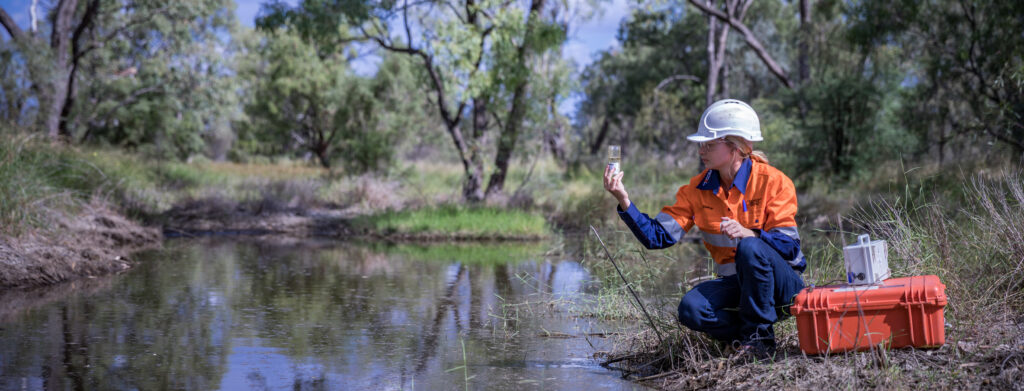Opening statement by Minerals Council of Australia CEO Tania Constable to Senate Environment and Communication Legislation Committee

Public hearing into the Environment Protection Reform Bill 2025 and related bills
14 November 2025
Thank you for the opportunity to appear before this inquiry.
The minerals industry strongly supports this bill’s intent to deliver a system that protects Australia’s unique environment while enabling responsible and efficient project development.
At present Australia has more than 230 operating mines, representing 11 per cent of GDP, 1.2 million jobs in the value support chain, $161 billion in goods and services using 63,700 local suppliers and a conservative estimate of $661 million in community support last year.
Mining capital is highly mobile, and while Canada, the United States and Chile – as well as emerging mining jurisdictions such as South America and the Middle East – are acting decisively to cut approval times and attract investment, it takes 16 years to bring new mines and processing facilities into production in Australia.
Modernising the EPBC approval process will allow our industry to deliver investment, jobs and regional benefits faster.
When mining grows faster, all Australians benefit.
Developing more mines, more quickly will allow Australia to responsibly produce sooner and at greater scale – from traditional commodities to critical minerals such as copper, nickel and lithium – to support global decarbonisation and sustainable development goals.
We have an immense opportunity before us to boost Australia’s position and reputation as a reliable and globally leading producer of the minerals the world needs.
The right reforms will help supercharge jobs, investment and Australia’s prosperity.
And the right reforms will also help enable Australia to move ahead of our competitors and take the lead in the race to supply critical minerals to the world.
A reform package that achieves the right balance – protecting the environment, building public confidence and enabling timely development of Australia’s resource projects, from iron ore, coal and gold to copper, nickel, lithium, molybdenum and other critical minerals – would represent balance for the mining sector and a lasting win for Australia.
The MCA has been engaging constructively with various parties on amendments so this bill can deliver better outcomes for the environment, communities and the economy.
However, several fundamental changes must be made to ensure the Bill is workable, balanced and effective. If these key issues are not addressed, the risk of unintended consequences for business is high – and the legislation will fail to deliver a net gain for environmental outcomes, productivity or the government’s economic and decarbonisation priorities.
Key changes which should be in the Bill include:
- A single, clear definition of unacceptable impacts for all Matters of National Environmental Significance (MNES) is required.
Unacceptable impacts is a critical new test where projects will either be rejected outright or move forward for detailed assessment. The 37 requirements are unclear and subjective, capturing vast swathes of the landscape and opening avenues for legal challenge. As drafted, this does not achieve the government’s intent to provide clear criteria. This complex issue requires clear, evidence-based guidance through national standards and policy – rather than unclear legislation that cannot be easily fixed. - All existing assessment pathways should be retained
Complex developments are unlikely to qualify for the new streamlined process. Removing current pathways would force most projects – except minor ones – into the longest and most costly approval route, undermining the intent of reform. - Clear accountability of the proposed Environment Protection Agency (EPA):
The EPA must be accountable to the public through elected officials. The Government’s statement of expectations should be binding or supported by direction powers similar to those under NOPSEMA. The CEO will hold a powerful position and should be removable for failing to meet these expectations. Without this accountability, the EPA’s role should be limited to compliance, enforcement and assurance functions only. - Compliance and enforcement measures should be balanced and proportionate:
Very high penalties and unconstrained Environmental Protection Orders (EPOs) without safeguards creates investment risk. High penalties should apply only to egregious beaches. EPOs should be time-limited, evidence-based, and subject to natural justice. - New climate disclosures should be explicitly excluded from decision-making:
These provisions risk duplicating existing reporting obligations and could open new avenues for legal challenge. The legislation should make clear the Minister’s stated intent these will not form part of approval decisions. - Greater clarity around the “net gain” test:
The proposed “net environmental gain” requirement will create uncertainty for proponents. The test should be redefined to require a net gain for the environment as a whole, rather than every individual matter. - Refinement of the nuclear actions definition:
While the intent is supported, as drafted it would unintentionally capture commodities and activities unrelated to the nuclear fuel cycle – such as critical minerals, universities and medical facilities. Simple changes can maintain the focus on radiological risk.
While the bills include changes that will enable greater efficiency, most business gains will only happen over time. Once the bills are passed, Federal and willing state and territory governments should commit to an ambitious, timebound pathway to accredit state and territory processes.
If industry’s key concerns can be addressed, the MCA supports the Bills being passed.
Thank you for the opportunity to appear today, and we look forward to discussing these issues further with the Committee.